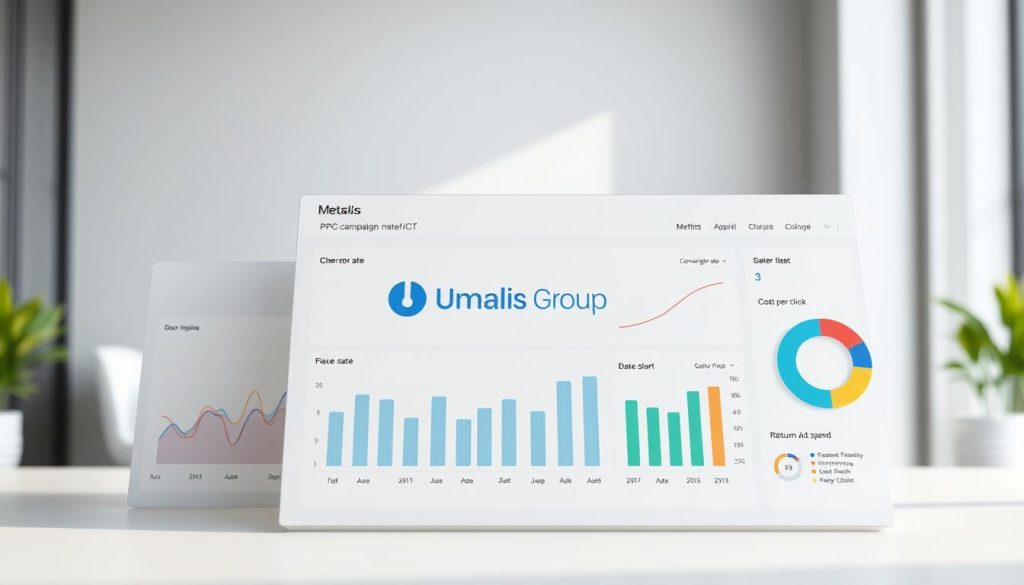As an independent professional, establishing a strong online presence is crucial for attracting new clients and growing your business. One effective way to achieve this is through Pay-Per-Click (PPC) advertising, a digital marketing strategy that allows you to reach potential clients actively searching for your services.
With PPC, you only pay when someone clicks on your ad, making it a cost-effective way to drive targeted traffic to your website. By leveraging platforms like Google Ads and social media advertising, you can increase your online visibility, compete effectively in your market, and ultimately boost your revenue.
Table of Contents
Key Takeaways
- Understand the basics of PPC advertising and its benefits for independent professionals.
- Learn how to create effective PPC ads that drive targeted traffic to your website.
- Discover how to leverage PPC platforms like Google Ads to maximize your return on investment.
- Gain insights into optimizing your PPC campaigns for better performance.
- Understand how PPC advertising can help you compete effectively in your market.
Understanding PPC Advertising Fundamentals
To succeed in the digital landscape, independent professionals must understand the basics of PPC advertising. PPC, or pay-per-click, is a form of online marketing where advertisers pay a fee each time their ad is clicked. This model allows for performance-based investment, making it an attractive option for those looking to manage their advertising cost effectively.
What is PPC and How Does it Work?
PPC advertising involves bidding on keywords relevant to your professional services. When potential clients search for these terms, your ads appear, providing immediate visibility. One popular form of PPC is search engine advertising, which allows you to pay for ad placement in sponsored links. You only pay when someone clicks on your ad, making it a cost-effective way to drive traffic to your site.
Key Benefits for Independent Professionals
PPC offers several benefits, including precise targeting capabilities and measurable ROI. It allows you to reach potential clients actively seeking your services and provides detailed analytics to refine your campaigns. With PPC, you can scale your campaigns based on your business needs, making it a flexible and effective marketing strategy. By leveraging PPC, independent professionals can compete with larger firms on a level playing field for specific search terms.
Getting Started with PPC Platforms
As an independent professional, navigating the world of PPC advertising can be daunting, but with the right platforms, you can achieve significant success. The key to a successful PPC campaign lies in understanding the different platforms available and their respective strengths.
The Primary PPC Platform: Google Ads
Google Ads stands as the cornerstone platform for PPC advertising, offering independent professionals unparalleled reach with access to over 90% of internet users through Google’s search engine and partner networks. When setting up your first Google Ads campaign, you’ll need to understand the platform’s structure of campaigns, ad groups, keywords, and ads to effectively organize your advertising efforts.
Alternative PPC Options: Social Media
Social media platforms like Facebook, Instagram, and LinkedIn offer alternative PPC options that may be particularly valuable for independent professionals in visually-oriented or B2B fields respectively. Each platform has distinct advantages: Google Ads excels at capturing high-intent searches, while social media PPC can target based on detailed demographic and interest-based parameters.
Selecting the Right PPC Platform
Your professional specialty should guide your platform choice—consultants and service providers often find Google Ads most effective, while creative professionals may see better results on visual platforms like Instagram. Consider starting with a single platform to master its specifics before expanding your PPC presence across multiple channels, allowing you to refine your approach before scaling.
Mastering Keyword Research for Effective Campaigns

The foundation of a successful PPC campaign lies in meticulous keyword research. For independent professionals, understanding and implementing effective keyword strategies is crucial for reaching potential clients actively searching for their services.
Identifying Relevant Keywords
Begin by brainstorming core keywords directly related to your professional services. Expand this list by considering client problems, industry terminology, and geographic modifiers relevant to your practice area. For instance, if you’re a freelance writer, your keywords might include « content writing services » or « freelance writer for hire. »
Understanding Search Intent
Understanding search intent is crucial—differentiate between informational searches (where users seek knowledge), navigational searches (looking for specific sites), and transactional searches (ready to purchase services). This understanding helps in creating targeted PPC campaigns that resonate with your audience.
Utilizing Keyword Research Tools
Tools like Google’s Keyword Planner, SEMrush, and Ahrefs offer valuable insights into search volume, competition, and keyword trends. These tools help refine your keyword research and improve your PPC strategy.
To further enhance your PPC strategy, consider organizing your keywords into tightly themed groups based on service types, client needs, or geographic areas. This approach creates more relevant ad groups, improving quality scores and reducing costs. Regularly reviewing performance data and adjusting your keyword list ensures your campaigns remain effective and targeted.
Creating High-Converting PPC Campaigns

High-converting PPC campaigns are the key to unlocking the full potential of online advertising for independent professionals. To achieve this, it’s essential to adopt a strategic approach that aligns compelling ad copy with targeted landing pages designed specifically for your unique value propositions.
Crafting Compelling Ad Copy
When crafting ad copy, focus on communicating your professional credentials, unique expertise, and specific benefits that differentiate your services from competitors in limited character space. Include strong calls-to-action that speak directly to potential clients’ needs, using action verbs that encourage immediate engagement.
Designing Effective Landing Pages
Landing pages should maintain message consistency with your ad copy, creating a seamless experience where visitors immediately find what was promised. Design these pages specifically for conversion by removing navigation menus, focusing on a single offer or service, and featuring prominent contact forms or scheduling options.
Setting Up Conversion Tracking
Set up proper conversion tracking to measure not just clicks but meaningful client actions like contact form submissions, consultation bookings, or service inquiries. This will help you understand the effectiveness of your PPC campaigns and make data-driven decisions.
To further optimize your PPC campaigns, consider A/B testing different elements of both your ads and landing pages to continuously refine your approach based on data. Implementing trust indicators such as professional certifications, client testimonials, and case studies can also enhance your credibility as an independent professional.
Budget Management and Bidding Strategies
Effective budget management and bidding strategies are crucial for independent professionals to maximize their return on investment (ROI) in PPC advertising. A well-planned approach helps in optimizing costs and improving campaign performance.
Determining Your Optimal PPC Budget
To determine your optimal PPC budget, calculate your service’s average client value, conversion rate, and profit margin. This calculation helps establish how much you can profitably spend to acquire a new client. Start with conservative daily budgets, often between $10-$30, to gather performance data before scaling successful campaigns.
Understanding Cost Per Click (CPC)
Understanding cost per click (CPC) is vital as it varies significantly across different professional services. Legal and financial services typically have higher CPCs compared to creative services. Your quality score significantly impacts your actual CPC, with Google rewarding relevant, high-performing ads with lower costs.
Bidding Strategies for Maximum ROI
Manual CPC bidding gives you maximum control, while automated bidding strategies become more effective once you’ve accumulated sufficient conversion data. Consider implementing bid adjustments based on device, location, and time of day to focus your budget on the most profitable circumstances.
- Begin with conservative daily budgets to gather performance data.
- Understand that CPC varies across different professional services.
- Use manual CPC bidding for maximum control initially.
- Implement bid adjustments based on device, location, and time of day.
Measuring and Optimizing Campaign Performance

Measuring and optimizing campaign performance is a continuous process that independent professionals must undertake to maximize their PPC advertising effectiveness. Regular analysis and adjustments are crucial to ensure that your campaigns remain effective and aligned with your professional goals.
Essential PPC Metrics to Track
To gain a comprehensive understanding of your campaign’s health, track essential PPC metrics including click-through rate (CTR), conversion rate, cost per conversion, and return on ad spend (ROAS). For independent professionals, the quality of leads often matters more than quantity, so implement tracking that measures not just inquiry volume but also lead quality.
A/B Testing for Continuous Improvement
Implement A/B testing methodically by changing only one element at a time to clearly identify which variations resonate best with potential clients. Use Google Analytics in conjunction with platform analytics to understand the full client journey.
Adjusting Campaigns Based on Performance Data
Develop a regular optimization schedule to review performance data and make incremental improvements. Adjust campaigns based on seasonal factors relevant to your profession, and create a performance dashboard tailored to your professional goals.
| PPC Metric | Description | Importance |
|---|---|---|
| CTR | Click-through rate measures ad effectiveness. | High CTR indicates relevant ads. |
| Conversion Rate | Percentage of users completing a desired action. | Indicates the effectiveness of landing pages. |
| ROAS | Return on ad spend measures revenue generated per dollar spent. | Critical for evaluating campaign profitability. |
Conclusion: Taking Your PPC Success to the Next Level
Effective PPC campaigns require a blend of technical optimization and clear communication of your unique value proposition. To maximize ROI from PPC advertising, it’s essential to continually refine your campaigns based on performance data. This involves choosing the right keywords, arranging them into well-organized ad groups, and setting up landing pages optimized for conversions.
As you gain experience, consider expanding your strategy by exploring additional keyword opportunities, testing new ad formats, and refining your landing pages. Advanced targeting options like remarketing can help reconnect with previous website visitors. Implementing automated bidding strategies can also optimize for specific goals like target CPA or ROAS.
By staying informed about platform changes and working with a PPC specialist when needed, you can bring expert perspective to your campaigns. Remember, PPC success is about clearly communicating your professional expertise to potential clients at the moment they’re searching for solutions.
FAQ
What is the primary goal of a landing page in a PPC campaign?
The primary goal of a landing page is to convert visitors into customers by providing a clear and relevant message that aligns with the ad copy and encourages a specific action.
How do I determine my optimal PPC budget?
To determine your optimal PPC budget, consider factors such as your business goals, target audience, industry competition, and the cost per click (CPC) for your chosen keywords.
What is the importance of keyword research in PPC campaigns?
Keyword research is crucial in PPC campaigns as it helps identify relevant keywords that align with your business offerings, understand search intent, and create targeted ad copy that resonates with your target audience.
How can I improve my PPC campaign’s click-through rate (CTR)?
To improve your PPC campaign’s CTR, focus on creating compelling ad copy, using relevant keywords, and optimizing your ad extensions to make your ads more visible and appealing to potential customers.
What is the role of A/B testing in PPC campaign optimization?
A/B testing plays a crucial role in PPC campaign optimization by allowing you to compare different ad variations, landing pages, or bidding strategies to identify the most effective approaches and improve campaign performance.
How do I measure the success of my PPC campaigns?
To measure the success of your PPC campaigns, track essential metrics such as conversion rate, cost per conversion, and return on ad spend (ROAS), and adjust your campaigns accordingly to optimize performance.
What is the difference between Google Ads and social media PPC platforms?
Google Ads is a search engine-based PPC platform that targets users actively searching for specific keywords, while social media PPC platforms target users based on demographics, interests, and behaviors, often in a more native and visually-oriented environment.
How can I ensure that my PPC campaigns are cost-effective?
To ensure that your PPC campaigns are cost-effective, regularly monitor your campaign performance, adjust your bidding strategies, and optimize your ad copy and landing pages to maximize your return on investment (ROI).





